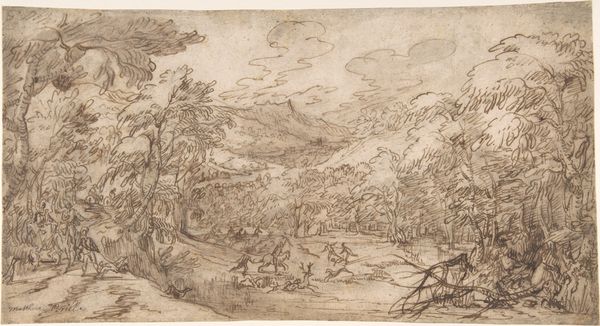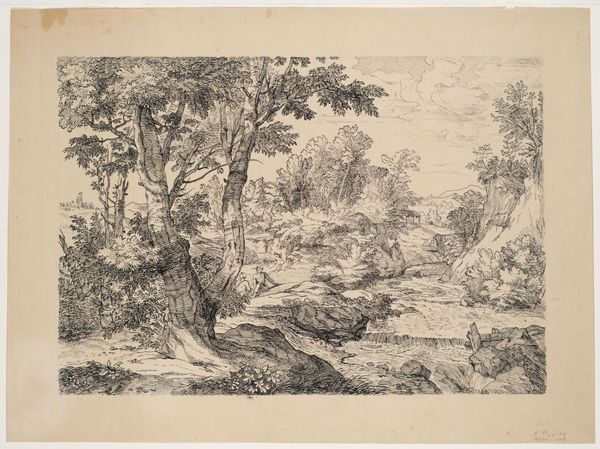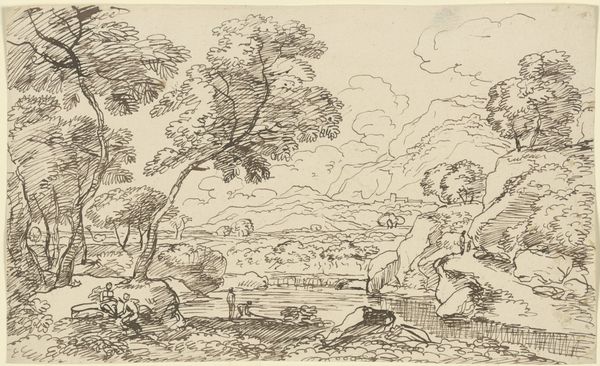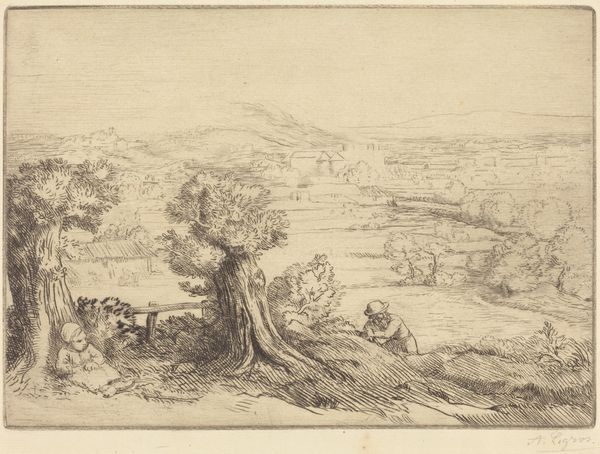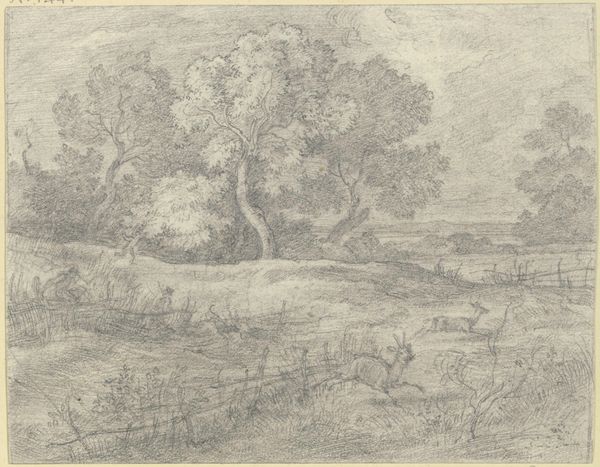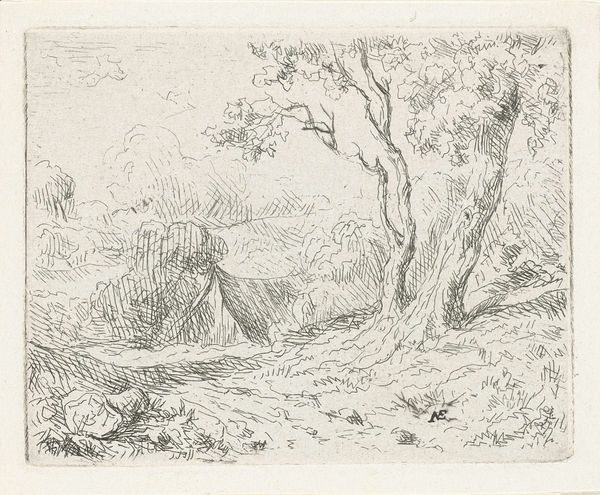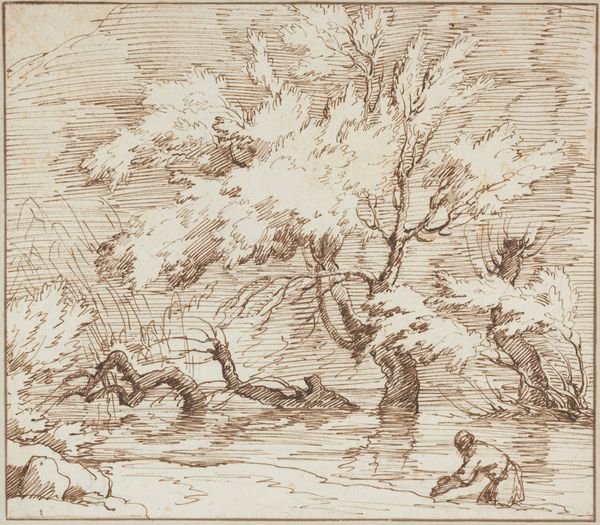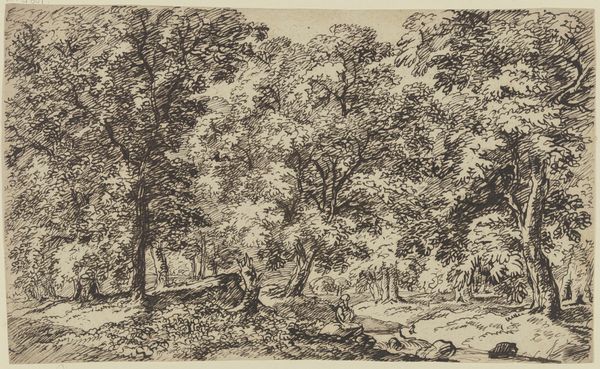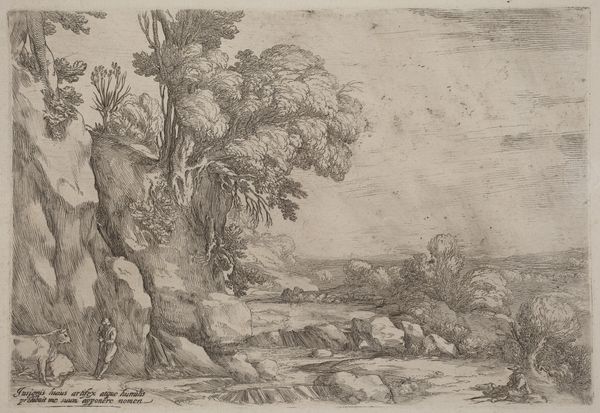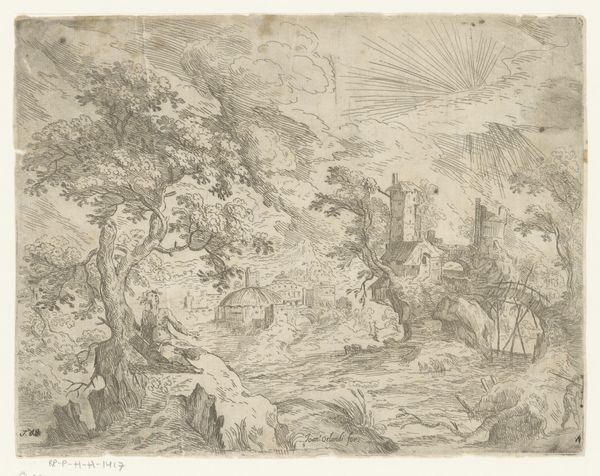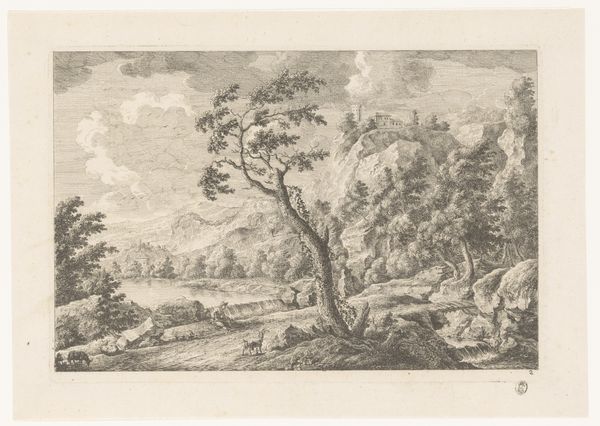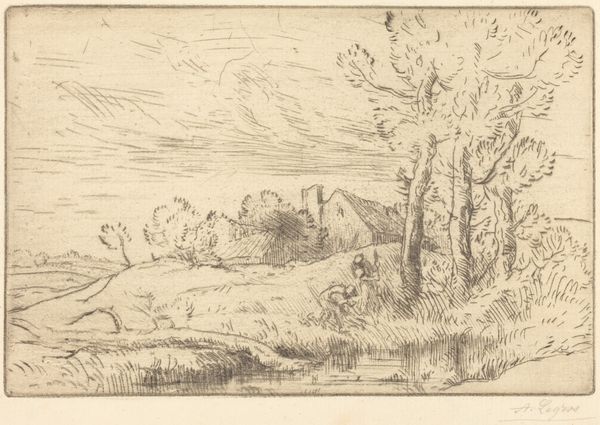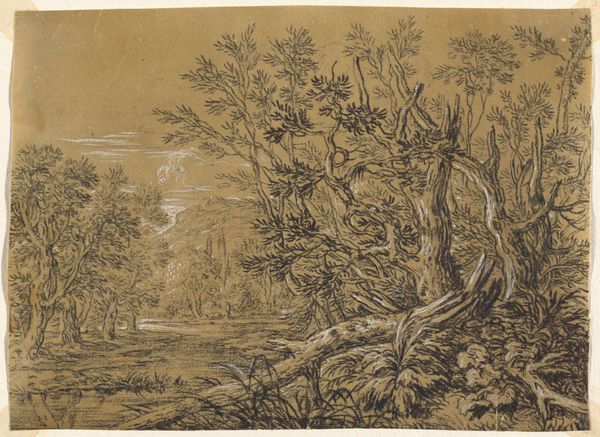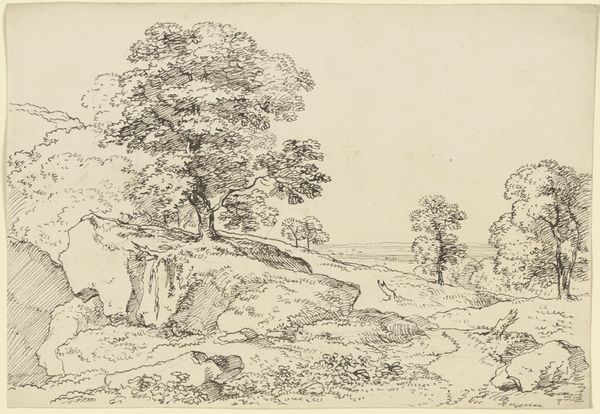
drawing, print, etching, ink
#
drawing
#
ink drawing
# print
#
pen sketch
#
etching
#
landscape
#
ink
#
pencil drawing
#
realism
Copyright: National Gallery of Art: CC0 1.0
Editor: We're looking at Alphonse Legros' etching "Landscape," also known as "Paysage." The delicate lines create this almost dreamlike quality, but there is also an element of loneliness to the lone figure in the foreground. How do you interpret this work, especially considering its time? Curator: It's essential to understand 19th-century landscape art not just as an aesthetic exercise but as deeply entwined with the socio-political realities of its time. The Industrial Revolution triggered migrations and urbanization. Legros, like many artists, depicted nature as both an escape and a commentary. Notice how the figure is separated from the town in the distance. Editor: That's interesting; I hadn't considered it in the context of urbanization. So, the figure’s solitude reflects a broader societal alienation? Curator: Precisely. And the etching technique itself, with its emphasis on line and tonal subtleties, speaks to a democratisation of art production; etching allowed for more accessible, reproducible images. We must also consider the identity of the artist, and how their lived experiences influenced their artistic perspective. Do you think this landscape might be reflecting Legros's views on the rapidly changing social and economic landscape of his time? Editor: Possibly. Knowing the piece was an etching allows me to rethink the composition and Legros' intentions. It also impacts how I think about his relationship with the landscape. Curator: Exactly! And understanding the conditions of its production – etching as a medium accessible to a wider range of artists – complicates simplistic readings of the solitary figure. It perhaps hints at resilience and quiet resistance within these landscapes. Editor: I’m beginning to understand that the personal and the political were deeply intertwined with landscape art. Curator: Absolutely. It provides a far more grounded appreciation of the artwork. Editor: Thank you, that expanded my views. I will remember this perspective when analyzing artwork in the future.
Comments
No comments
Be the first to comment and join the conversation on the ultimate creative platform.
